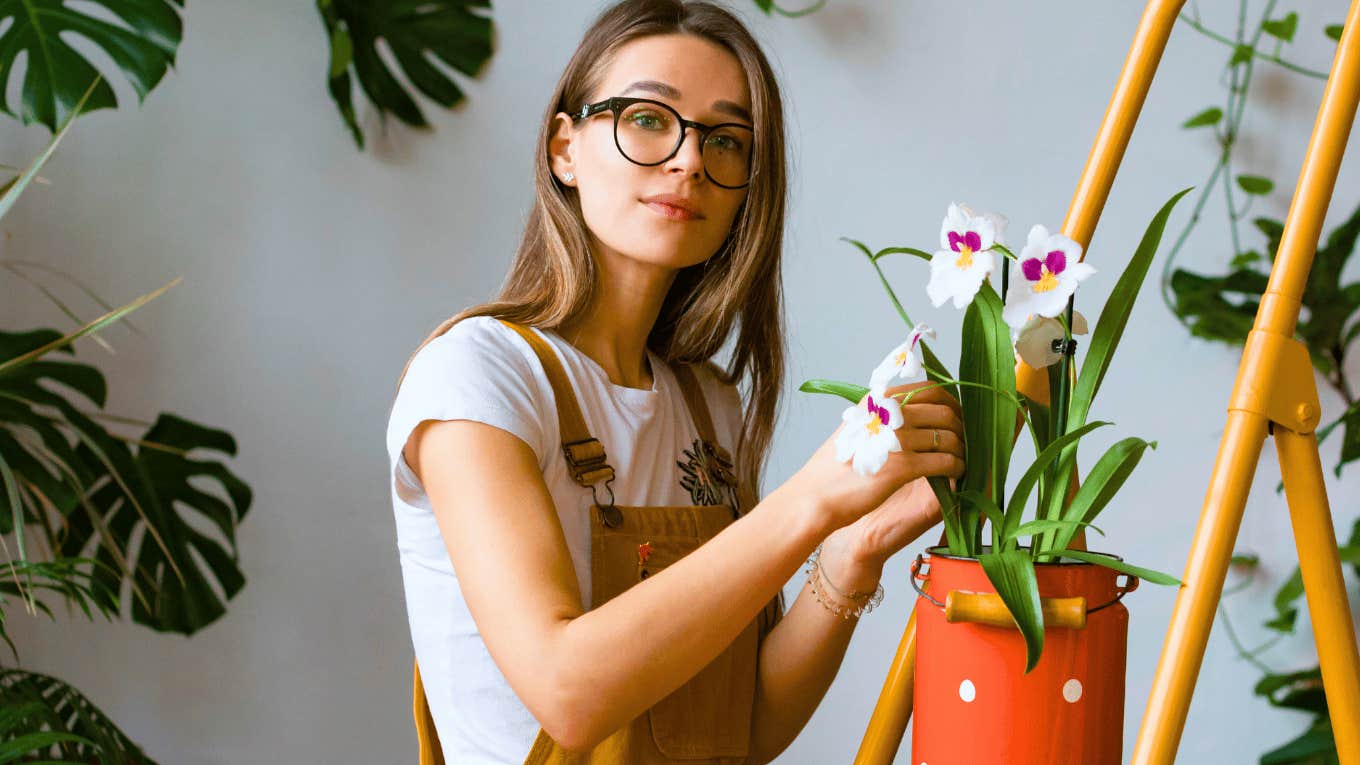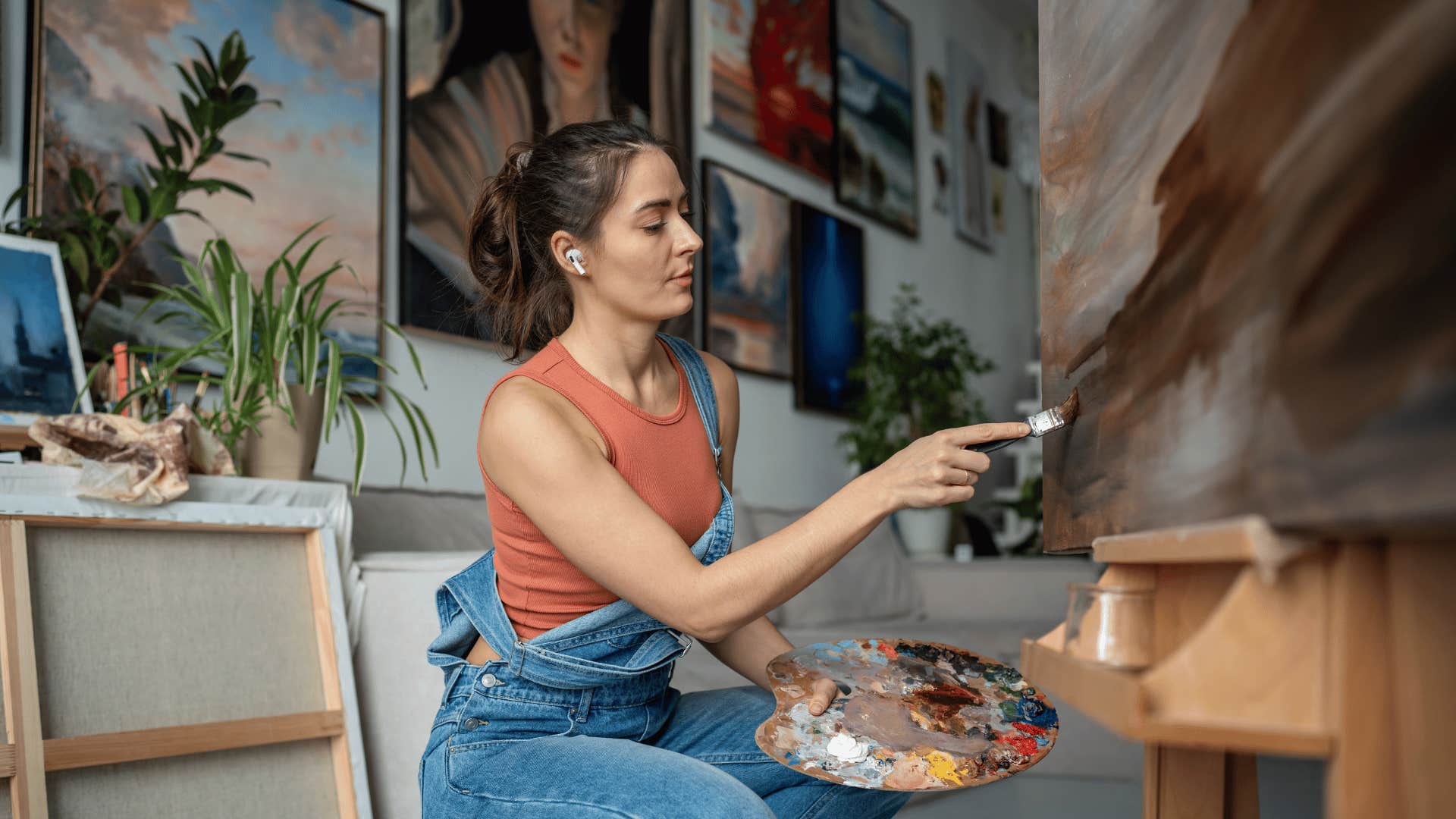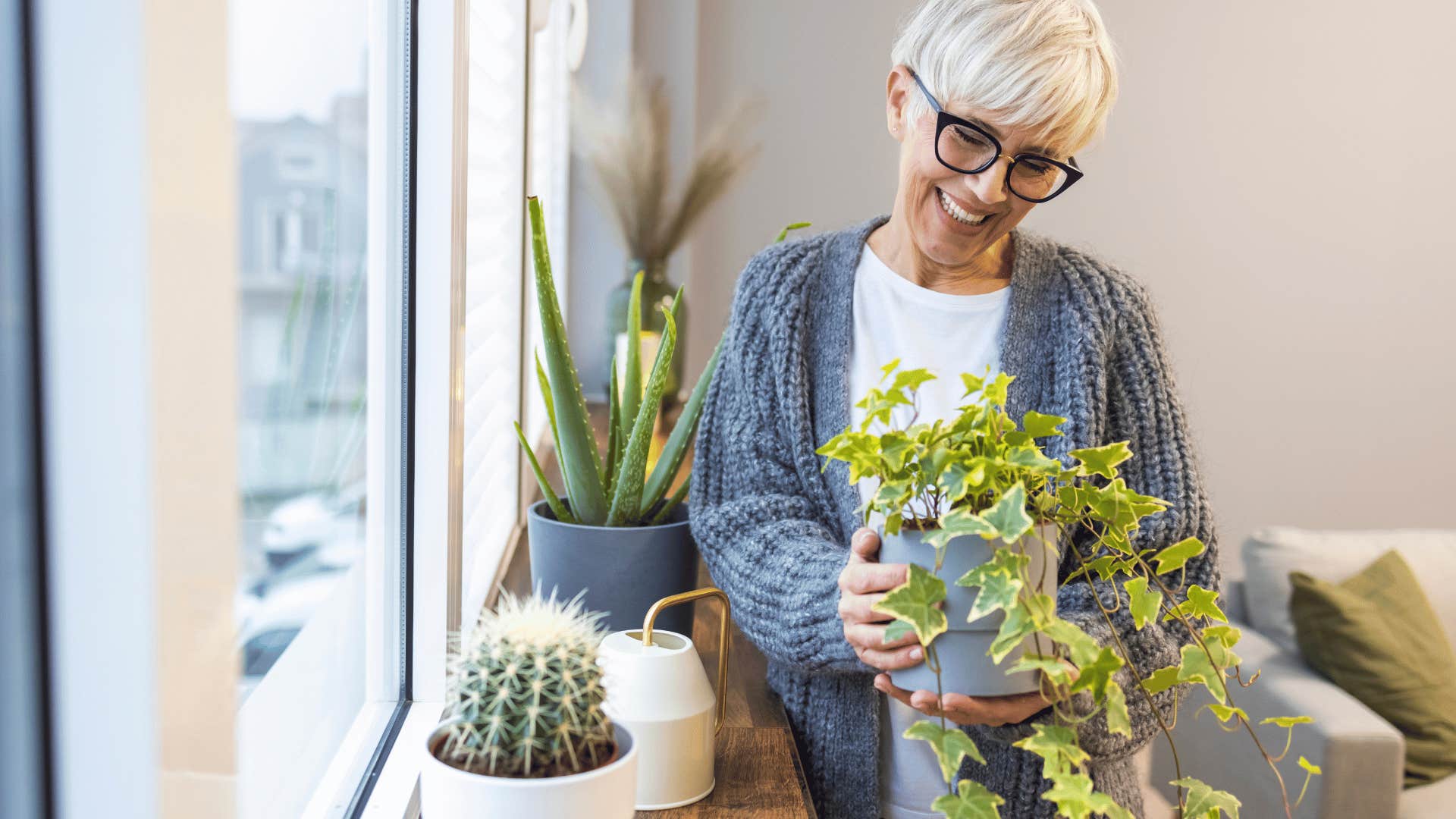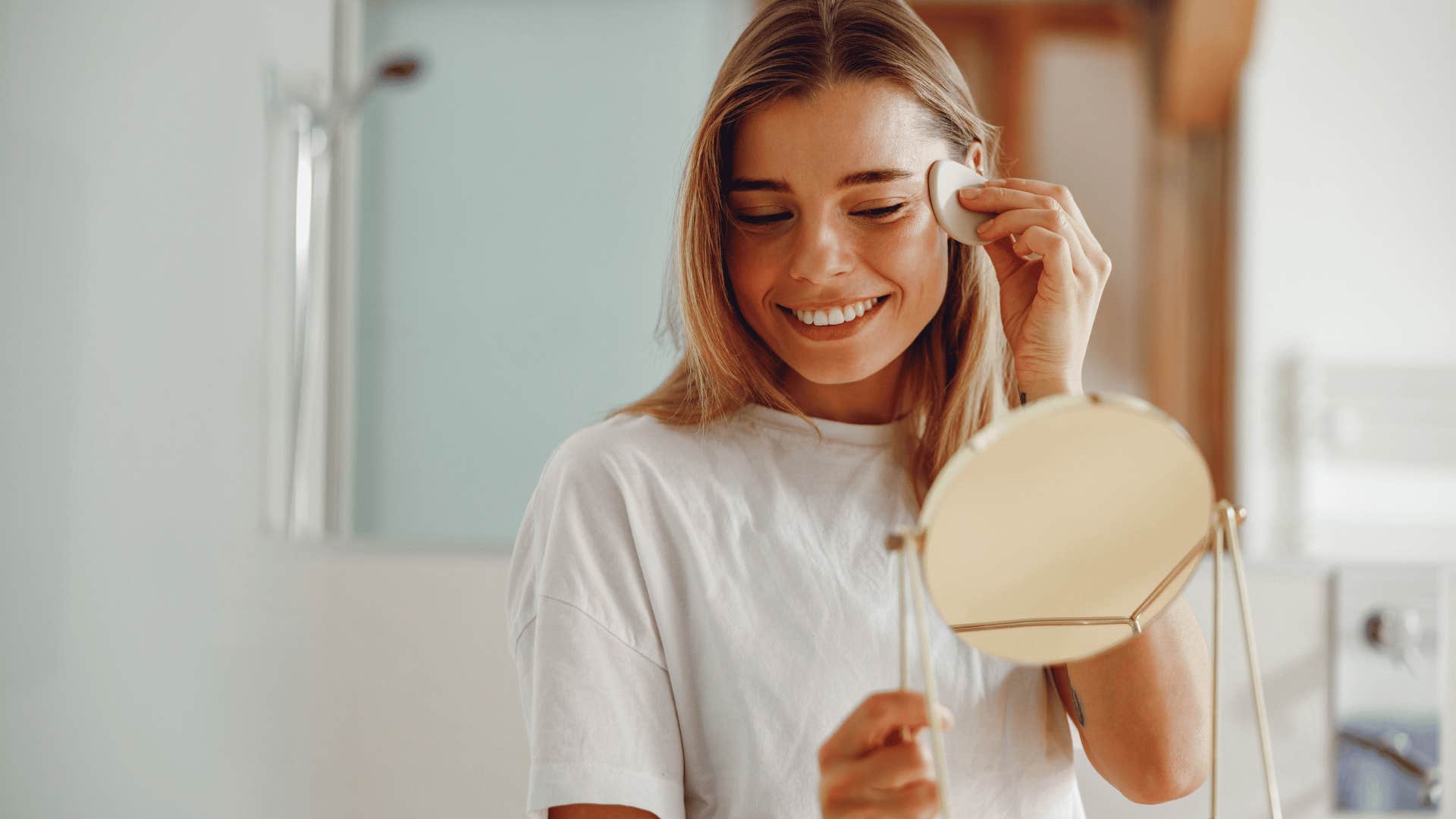11 Low-Energy Hobbies That Don’t Take More Than 15 Minutes Of Your Time
It's good to have hobbies, but sometimes we just don't have the time or the energy.
 DimaBerlin / Shutterstock
DimaBerlin / Shutterstock We constantly hear about the importance of trying new hobbies. In a 2023 study, over 60% of participants that were observed had physical or mental health problems. The researchers said that hobbies were linked to better mental well-being, and, for those who participated in certain hobbies, a decrease in loneliness.
That said, the harsh reality is that some people just don’t have the time and energy to devote to a hobby. The benefits of hobbies are obvious, but fitting them into a busy schedule can feel impossible. Thankfully, there are some low-energy hobbies that you can do that require little little of your time.
Here are 11 low-energy hobbies that don’t take more than 15 minutes of your time
1. Reading
 Roman Samborskyi | Shutterstock
Roman Samborskyi | Shutterstock
It seems so simple, but one of the most rewarding hobbies you can take on is also low-energy and takes however long you want it to. When you read, you control the amount of time you spend doing it. While it’s easy to get lost in a good book, you could very easily set a timer to make sure you’re not taking up too much of your schedule. And, now, books can easily be accessed on tablets and phones, and you can even listen to audiobooks while you complete other tasks.
In a study published in the National Literacy Trust, researchers said, “Although reading for pleasure has not been a research priority, studies are accumulating that emphasize the importance of reading for pleasure for both educational as well as personal development. These studies show that promoting reading can have a major impact on children/young people and adults and their future.”
While reading obviously has educational benefits, it is just as effective when done for fun. We all read things that we see everyday without even thinking about them. But, sitting down and actually choosing to read a book you enjoy is not only a pleasure, but also a chance to learn and expand your knowledge.
2. Meditation
 fizkes | Shutterstock
fizkes | Shutterstock
Many people think of meditation as something you have to do, not something you get to do. A bit of reframing can make a huge difference here. No one has to meditate, and many people don’t. If you pursue meditation, you are technically choosing to engage in a hobby. And really, what better hobby could you take on than one that betters and clams your mind?
According to the Mayo Clinic, “Meditation can give you a sense of calm, peace and balance that can benefit your emotional well-being and your overall health. You also can use it to relax and cope with stress by focusing on something that calms you. Meditation can help you learn to stay centered and keep inner peace.”
The Mayo Clinic also noted that the benefits of meditation last far beyond just when you are doing it, but continue to decrease your stress. Meditation is another hobby you can take on that takes however long you want it to. You can set a timer or choose a guided meditation that is the length you desire. Meditation is not just something to do to take up time, but something that will truly help you.
3. Painting
 DimaBerlin | Shutterstock
DimaBerlin | Shutterstock
Painting can be deceiving because the way some people do it professionally is certainly not quick or low-energy. But just getting out some watercolors to paint whatever you’re interested in at the moment isn’t a big deal at all. You can choose when to start and stop, and you can even decide how much effort you put into it.
A study published in The Arts in Psychotherapy found that people engaging in artistic activities have increased blood flow to the medial prefrontal cortex, which is a part of our reward system. In short, researchers found, “Visual self-expression helps with attention and improves health and well-being.”
Painting is a great artistic activity because it allows you pretty significant autonomy over what you are creating. There are no real conventions that must be followed. You get to make the rules, and, as a result, have fun — in a short period of time while expending little energy.
4. Calligraphy
 fizkes | Shutterstock
fizkes | Shutterstock
Learning calligraphy is a bit like painting, but for people who prefer words to images. Calligraphy only takes about as much energy as is needed to use a pen or marker. You can find workbooks or tutorials that you can chip away at for only a few minutes a day, all while learning a valuable skill that will serve you well.
While we typically think of the benefits of calligraphy coming in when someone you know needs invitations or brochures designed, the hobby actually has calming benefits similar to meditation. As a study published in Frontiers in Psychology concluded, “Calligraphy, as a form of mindful practice, encourages focus, creativity and relaxation, which collectively contribute to a more peaceful mental state … The study found a significant positive correlation between calligraphy activities and peace of mind/stress self-management.”
Not only does calligraphy give you a chance to show off your artistic skills and flex your creative muscles, it also allows you to work on something that is naturally calming and relaxing, which is a huge benefit to come from such a quick activity.
5. Caring for plants
 Dragana Gordic | Shutterstock
Dragana Gordic | Shutterstock
Some people will probably cringe at the thought of taking care of plants as a hobby as not everyone has a green thumb. However, if you want to have one, there’s no better way to develop it than to put in some practice. It doesn’t take long to research the best plants for you and pick them up at a nursery. It’s something that can easily be split into 15-minute increments if needed. From there, all that’s needed is the care and upkeep, which certainly doesn’t take a large chunk of time each day.
Caring for indoor plants can have a wide variety of benefits aside from the obvious science class answer of making the air cleaner. Writer Rebecca Joy Stanborough noted that having indoor plants can improve productivity and focus, while also lowering stress levels. In fact, a study published in the Journal of Physiological Anthropology found “that indoor plants have positive psychological effects on the autonomic nervous system.”
Taking care of plants may seem like such a small thing to do that it barely even warrants being called a hobby, but it most certainly is. Just like other hobbies, caring for plants can help you live a more balanced life and give you something other than just yourself to focus on caring for, without a huge time or energy commitment.
6. Photography
 Dean Drobot | Shutterstock
Dean Drobot | Shutterstock
Photography as it is traditionally known probably sounds too complicated to fit these parameters. But there’s no need to procure an expensive camera and learn about things like exposure and lighting — unless you want to, of course. Since the advent of smartphones, iPhone photography has taken off as a hobby. Purists may snub their noses at it, but it’s a quick alternative for someone who has a slight interest but doesn’t want to fully commit.
It literally takes less than a minute to snap a photo on your phone, and many now have similar features to professional cameras if you’re interested in editing. You can learn from some tutorials, or choose to learn by doing and simply start taking pictures of any beauty you come across. Then, what you do with the pictures can become a hobby too. Maybe you print and frame them, or use them in a journal, or do something completely different. Whatever it is, the creativity will only continue.
7. Develop a beauty routine
 Yaroslav Astakhov | Shutterstock
Yaroslav Astakhov | Shutterstock
If you’ve ever seriously thought about those beauty vloggers and influencers we all watch, they had to develop their techniques somehow. Chances are, it came from watching people just like them — other vloggers. Following along with a beauty tutorial, or just experimenting on your own, you can create makeup and hair looks and a curated skincare routine.
If you really get into it and you’re interested in doing so, you could certainly become one of those vloggers yourself, although doing so would take some more time and effort. ZipRecruiter estimated that some vloggers could make over $60 per hour, which is likely a low estimate given how social media works. Plus, there are plenty of free products available as well.
But even if you don’t want anyone to ever see what you do, you can still do your makeup and hair just for your own fun. Plus, if you’re going to be heading out anyways, your hobby can really be part of your daily routine, which makes it even more efficient.
8. Coloring
 Dean Drobot | Shutterstock
Dean Drobot | Shutterstock
Coloring is no longer just for kids. Now, you can do it as an adult with zero shame with coloring books made just for you. Coloring is similar to painting but requires less clean up and, therefore, slightly less effort. The best part is you can do it while watching a favorite show or movie or listening to an audiobook or music. (Really, at this point, you’d be habit-stacking.)
Just like other artistic hobbies, you can decrease stress through coloring. The Mayo Clinic’s Joel Bobby, LICSW, said that coloring is actually a mindfulness practice, like meditation, because it forces you to stay in the present moment. It can even decrease fatigue and pain. The benefits of coloring are nearly endless.
Coloring can also be used in strategic ways. Instead of just coloring in a blank illustration, you can color in a habit tracker or a mood tracker that helps you keep track of how you’re feeling or what you’re doing. It can even be used in some therapeutic settings. Some people may laugh at it thinking that it’s just for children, but coloring has definitely reached adults now.
9. Simple puzzles
 Pixel-Shot | Shutterstock
Pixel-Shot | Shutterstock
No one’s suggesting you take on a huge thousand-piece puzzle in 15 minutes, but there are plenty of simpler puzzles you could do in that length of time. Puzzles may seem like a hobby meant for children and the elderly, but they’re making a comeback in a cool way. Now, anyone can do puzzles without fear of getting some side eye, and anyone can find a puzzle that suits their own interests and needs.
Writing for Fortune, L’Oreal Thompson Payton said, “Studies have shown that jigsaw puzzles can help improve visual-spatial reasoning, short-term memory and problem-solving skills as well as combat cognitive decline, which can reduce risk of developing dementia.” Trauma therapist Olivia James also noted that activities like puzzles can help with mental health.
Doing a puzzle may seem like something too old-fashioned for you, but they’re making a comeback in a big way. Plenty of people do puzzles and really enjoy them. There’s no reason you can’t join their ranks, and no need to feel embarrassed about doing so.
10. Journaling
 Olena Serzhanova | Shutterstock
Olena Serzhanova | Shutterstock
Journaling is great because it can really take on any avenue that you want it to. You can be a traditional journalist and simply write about your thoughts and experiences, or you could journal on a specific subject, like gratitude. You could even forego words altogether and fill your journal with photos, printouts or magazine clippings, creating more of a visual experience.
Kaiser Permanente pointed out that journaling can help you track and achieve your goals, or allow you to look back and show you how far you’ve come. And, of course, it can be a way to “reduce stress and anxiety.” By writing about your problems, you just might find that they’re easier to solve and gain some new perspective in the process.
Journaling is an easy hobby anyone can take on and tailor to their own specific needs and interests. This includes the amount of time spent. While some writers could sit and journal endlessly, there’s no need to if you don’t want to. You can always set a timer or keep an eye on a clock to keep track of your time.
11. Learning a new language
 Reezky Pradata | Shutterstock
Reezky Pradata | Shutterstock
This hobby might sound intimidating because learning a new language seems like it would be a lot. And, depending on the approach you take, it can be. But it doesn’t have to be. With advancements in technology, you can use a simple app to practice for a few minutes a day. If you want to keep track of what you learn while you go, you could have a journal for that, or you could just rely on your memory.
According to Cambridge University’s Carley Spence, because learning a language combines novelty, or “having new experiences,” with repeated practice, it is a “brain workout” that can ward off dementia and degenerative neurological conditions. Spence added that studies have been done to show the differences in the brains of children who grow up bilingual, and those who learn a second language later in life have similar changes.
Learning a new language doesn’t have to be like heading back to high school or college. It can be fun, like a game really. There’s no reason it has to be boring or headache-inducing, and you might just find it benefitting you in your personal or professional life.
Mary-Faith Martinez is a writer with a bachelor’s degree in English and Journalism who covers news, psychology, lifestyle, and human interest topics.

